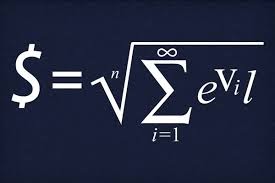THE DEVIL'S DUNG-MONEY
AND THE LOVE OF IT
Note well, you men who are yet to be
born, money has two usages! Jesus was never willing to touch a coin with His
hand. Those hands of His which molded the clay of the earth as a cure for blind
eyes, those hands which touched the contaminated flesh of lepers and of the
dead, those hands which clasped the body of Judas, so much more contaminated
than clay, than leprosy, than putrefaction, those white pure healing hands
which nothing could tarnish, never suffered themselves to be touched by one of
those metal disks which carry in relief the profiles of the proprietors of the
world. Jesus could mention money in His parables; He could see it in the hands
of others, but touch it—no!
But one day even Jesus was constrained to look at a
piece of money. They asked Him if it was permitted to the true Israelite to pay
the tribute, and He answered at once, "Show
me the tribute money." (Matt. 22:19) They showed it to Him, but He
would not take it. It was a Roman coin stamped with the hypocritical face of
Augustus. But He wished to seem not to know whose face it was. He asked, "Whose is this image and superscription?"
They answered, "Caesar's."
Then He threw into the faces of the wily interrogators the answer which
silenced them, "Render therefore
unto Caesar the things which are Caesar’s; and unto God the things that are
God's." (Matt. 22:21; Luke 20:25)
Money is a means for the exchange of earthly goods,
but we do not seek for earthly goods. What little is necessary for us, a little
sunshine, a little air, a little water, a piece of bread, a cloak, will be
given freely to us by God and by God's friends. Tire yourselves out, you other
people, all your lives to gather together a great pile of those round minted
tokens. We have no use for them. For us they are definitely unessential.
Therefore we give them back; we give them back to him who has had them coined,
to him who has had his portrait put on them, so that all should know that they
are his.
Jesus never needed to give back any money because He
never possessed any. He gave the order to His disciples not to carry bags for
offerings on their journeys. He made one single exception, and that a fearful
one. The Gospel tells us that one apostle kept the common purse. This disciple
was Judas, and even Judas felt himself forced to give back the payment for his
betrayal before fading in death. Judas is the mysterious victim sacrificed to
the curse of money.
The Bible has two basic attitudes toward wealth. In
the first place, wealth is acknowledged to be a blessing from God. This can be
seen from the witness of the Old Testament. God chose Abram and promised to
bless him and make his name great (Gen. 12:1-3). In the process, Abram became
rich (Gen. 13:2). Further, we are told that God blessed Isaac; and he became
very rich (Gen. 26:12-14). Solomon's wealth was seen as a sign of God's favor
(1 Kings 3:13; 10:23). Job, too, was blessed by God, and his wealth increased
greatly (Job. 42:12).
These few
examples do not allow us to assume that poverty is a sign of God's disfavor.
The Bible does not say that. Jesus' references to money in the New Testament
consist mainly of stories or parables which show the dangers of wealth. In the
parable of the seed and the sower Jesus warned that riches and the pursuit of
pleasure may keep some from maturing in the faith (Luke 8:14). A harsh warning
against the destructive nature of wealth is sounded in the story of the rich
farmer (Luke 12:16-21).
Physical resources God gives humans to control and the
human tendency to lift those resources to replace God as the center of life is the result of many.
Purpose of wealth in my note on Isa 23:18. “And her merchandise and her hire shall be
holiness to the LORD: it shall not be treasured nor laid up; for her
merchandise shall be for them that dwell before the LORD, to eat sufficiently,
and for durable clothing.”
To use wealth for personal desires has its own rewards
and they are wholly those of self-gratification which ends with the experience.
To use wealth merely for the production and accumulation of treasures of this
earth is to leave the essential spiritual life poor in the ultimate issues. To
look upon material wealth as a trust and to use it in such a way as to help and
bless men according to the will of God is, in the most literal sense, to lay up
treasure in heaven!
The ultimate destiny of wealth is not that of
establishing tyrannies, but that of providing sufficiency for the people
constituting the kingdom of God. To this end Jehovah reigneth. Happy are
those who dedicate whatever they have of earth's resources to this high and
holy purpose.

No comments:
Post a Comment